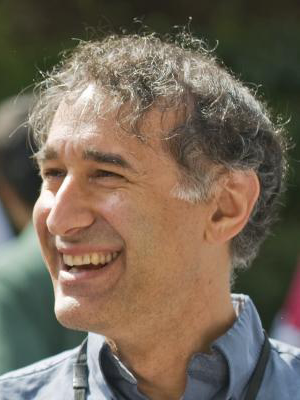- Affiliate Professor, Global Health
- Affiliate Professor, Microbiology

Fred Hutch Cancer Center
1100 Fairview Ave. N
Seattle, WA 98109
United States
Select from the following:
Dr. Emerman studies the replication of the human immunodeficiency virus, the virus that causes AIDS. His lab made key discoveries in how HIV infects cells including the ability of HIV to infect cells that are not actively dividing, the ability of HIV to transmit rapidly between cells, and the ability of HIV to encode genes that counter host defenses.
Along with his collaborator at the Fred Hutch Cancer Center, Dr. Harmit Malik, Dr. Emerman studies how humans and other primates have evolved to resist ancient viruses and how viruses have evolved to re-adapt to their hosts. This field, called Paleovirology, was established by Drs. Emerman and Malik as a means to explain how ancient and extinct viruses have had consequences for modern humans.
Dr. Emerman teaches a graduate course called "Human Pathogenic Viruses" that covers the replication, evolution, and pathogenesis of major human viral pathogens.
Background
Dr. Emerman received his Ph.D from the University of Wisconsin-Madison in 1986 where he worked in the lab of Howard Temin, who shared the Nobel Prize for the discovery of reverse transcriptase, the key protein that allows viruses such as HIV to multiply their genomes.
Dr. Emerman was a postdoctoral fellow at the Pasteur Institute in Paris from 1986-1989 where is worked in the lab of Luc Montaganier who shared the Nobel Prize for the discovery of the virus that causes AIDS. He became a faculty member at the Fred Hutchinson in 1989. He has studied viruses for his entire scientific career.
For more information on the Emerman lab click here.
- BS (Ohio State University)
- PhD (University of Wisconsin)
- French
- HIV/AIDS
HIV host-cell interactions
OhAinle, M., Helms, L., Vermeire, J., Roesch, F., Humes, D., Basom, R., Delrow, J. J., Overbaugh, J., and Emerman, M. A Virus-Packageable CRISPR Screen Identifies Host Factors Mediating Interferon Inhibition of HIV. eLIFE (2018), doi: 10.7554/eLife.39823
Binning, J.M., Chesarino, N.M., Emerman, M., and Gross, J.D. Structural basis for a species-specific determinant of an SIV Vif protein towards hominid APOBEC3G antagonism. Cell Host Microbe, (2019) 26(6):739-747. doi:10.1016/j.chom.2019.10.014
Chesarino, N.M., and Emerman, M. Polymorphisms in human APOBEC3H differentially regulate ubiquitination and antiviral activity. Viruses (2020), 12(4), 378
OhAinle, M., Kim, K., Keceli, S. K., Felton, A., Campbell, E., Luban, J., and Emerman, M. TRIM34 restricts HIV-1 and SIV capsids in a TRIM5α -dependent manner. PLOS Pathog (2020) 16(4): e1008507. https://doi.org/10.1371/journal.ppat.1008507
McDonnell MM, Crawford KHD, Dingens AS, Bloom JD, Emerman M. APOBEC3C tandem domain proteins create super restriction factors against HIV-1. mBio (2020) 11:e00737-20. https://doi.org/10.1128/mBio.00737-20.